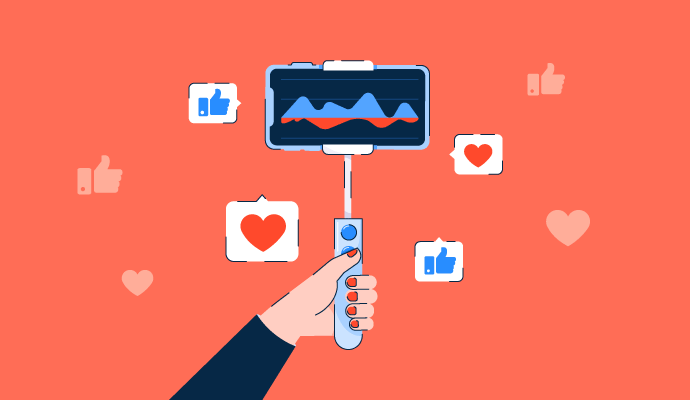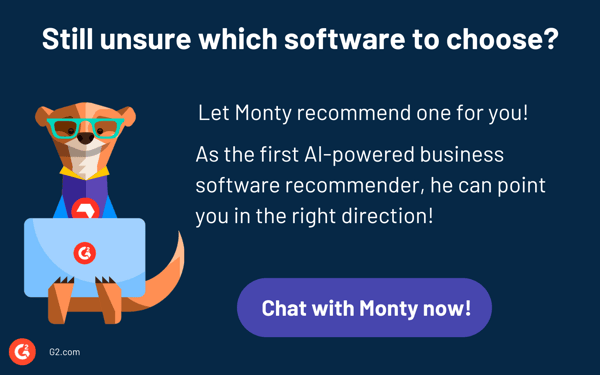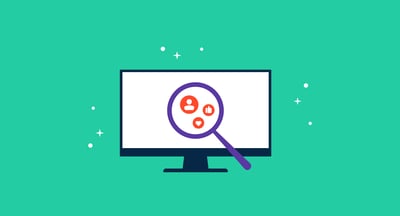April 3, 2024
 by Holly Landis / April 3, 2024
by Holly Landis / April 3, 2024

Ask any marketer and they’ll tell you – you’re only as good as the data you have.
Knowing the ins and outs of your audience and how they respond to your content is essential for making informed decisions when you create new online content. Even with new social media platforms arriving on the market every year, we’ve still got our tried-and-tested apps that we all love to use - and Instagram is definitely one of them.
Just like any other marketing tool, metrics on Instagram are a measure of how your content is performing. They’re key pieces of data that can be compared against your own historical data to determine what’s doing well and what could be improved.
Using metrics, marketers can decide how to create engaging content that resonates with their current audience, along with finding opportunities to reach new demographics.
Not every metric from social media analytics software ends up being important for every business or creator, but there’s a standard set of information that offers real insight into the status of your content. By making use of this data, you can drastically transform your approach to content creation and discover exciting opportunities online.
With over 1 billion monthly users worldwide, Instagram remains one of the top social media sites in the world. Managing a professional account on the platform without ever looking at analytics is a major lost opportunity. Particularly when you’re using Instagram for business, you could be missing out on key insights that line up with company key performance indicators (KPIs) and larger organizational goals.
With data to back you up, Instagram metrics can help you pitch for a bigger marketing budget and justify the time and effort you spend creating content specifically for social media. There are other important benefits too, including:
If you’re just getting started with tracking your Instagram data and aren’t sure where to begin, here are a few of the top data metrics you’ll want to track and analyze.
Your follower growth shows whether you’re gaining or losing followers throughout a given time period. Some people may consider this to be a vanity metric, and you certainly shouldn’t look at this one every day. The number rises and falls naturally; you’ll just stress yourself out if you check it all the time.
But do keep tabs on how your follower growth rate performs over a quarter or a full year. You should be seeing a steady increase in followers over longer time periods. If not, that could indicate that your content isn’t resonating.
The number of impressions on your content counts how many times it’s been seen. This could be new people watching or the same people viewing it multiple times, but it’s tied to individual pieces of content. If impressions are high, but engagement is low, this could mean that people aren’t enjoying that post.
Reach is similar to impressions, but is focused on the number of people who see your content, not how many times the content has been seen by itself. The same people could watch a single piece of content multiple times, which will increase impressions, but not reach since each user is only counted once.
Having people interact with your content in some way is always the goal, whether it’s a like, a comment, a share, or saving it to look at again later. Engagements by followers should naturally be higher than your engagements by reach, as reach can include anyone and not just your followers. Hopefully your loyal fans engage with the content you post.
Social media should only be one part of your marketing plan. Traffic that comes from Instagram should be compared against other referral sources and marketing channels. Seeing how this IG traffic stands up to other sources is an important factor in determining the success of this channel. You can use website tracking tools like Google Analytics to see this traffic, usually listed under Social or Referral sources.
One of the biggest developments on Instagram in recent years was the introduction of Stories. This content disappears after 24 hours, but if you have a creator or business account, you can still access insights within Instagram itself once the content is no longer publicly viewable.
Specific metrics to monitor for stories are Tap Backs and Forwards because they show how people are engaging with your content and what they’re watching. Story Exits give you an idea of when people stop watching your content. This is important to know if you have several Story posts going live at the same time.
Any replies to your stories such as likes or DMs are always good to understand as this displays an even higher level of audience engagement than simply someone watching the story.
Social media analytics tools are used to gather and report on data across a range of social media platforms and accounts. They’re the best way to gather deeper insights and monitor real-time data, with more metrics available than in-platform analytics options.
To be included in the social media analytics software category, platforms must:
* Below are the top five leading social media analytics software solutions from G2’s Winter 2024 Grid Report. Some reviews may be edited for clarity.
Sprout Social is an all-in-one social media publishing tool that offers content scheduling and real-time insights into content performance. The platform aims to empower your teams to better connect with audiences, simplify publishing workflows, and power strategic business decisions with the social insights that matter to your team.
“Sprout Social has made my day-to-day work significantly more time effective. The platform is user friendly, makes planning out content very easy, and the analytics are great. Using and syncing up to your platforms is very easy and straightforward.”
- Sprout Social Review, Ren H.
“Sprout Social's pricing is a little bit more expensive, which makes it less affordable for individuals or small enterprises.”
- Sprout Social Review, Tolulope A.
With Hootsuite, businesses can schedule posts across multiple social networks, track customer conversations, manage content, and monitor real-time insights from a single intuitive dashboard.
“Hootsuite brings a level of familiarity to its interface, allowing ease of use for beginner and advanced users. It is easy to implement basic to advanced levels of social media management.”
- Hootsuite Review, Shiroman D.
“The analytics could be a little more robust and allow you to compare posts across channels to see how it performed without having to go to each channel to get the information. At times, the data within Hootsuite's analytics does not match the data from the social channel.”
- Hootsuite Review, Denise T.
As a full service PR and communications solution, Meltwater tracks media coverage across both news and social media platforms for businesses of all sizes. It uses social intelligence to stay on top of billions of online conversations and extracts relevant insights so companies can strategically manage their brands.
‘Meltwater has truly transformed the way I work as a marketing manager, offering a comprehensive platform that caters to all my needs. The Engage tab, in particular, has become my favorite feature, allowing me to effortlessly publish content across multiple platforms. This not only saves me precious time, but also alleviates the stress associated with managing various channels.”
- Meltwater Review, Karolina P.
“My biggest frustration with Meltwater has stemmed from the Engage/Publish tab. Half of the time I try to attach a link to one of my scheduled posts, it doesn't work. It's very frustrating because I have to go to the actual platform to schedule it.”
- Meltwater Review, Julia N.
Zoho Social is a social media management platform for businesses and agencies. It provides post scheduling, monitoring, and custom dashboards for metric review. Some of its features include a publishing calendar, bulk scheduler, and repeat post to empower brands with all the social media publishing tools they need.
“For our small business, Zoho Social is working to help us consolidate information into one place. As we don't have a large team, this helps us monitor conversations, posts, and activity without jumping around to 3 or 4 different platforms. Creating drafts and being able to communicate in one place before a post is made is also a great feature.”
- Zoho Social Review, Zack M.
“Basic social listening features. Challenges with integration of third-party applications.”
- Zoho Social Review, Vatsi V.
SOCi is a cloud marketing platform that integrates artificial intelligence (AI) and machine learning (ML) with social and search data to provide custom insights from a single dashboard. This tool can help enterprise and small teams deliver on-brand responses to social engagements and publish top-performing content with optimized, multi-location workflows.
“It is easy to track postings, change material, and see which sites get the most return. Whether you are a pro at marketing or just getting started, this program takes care of all the hassles for you and gives you more time for networking as opposed to spending hours creating posts for each site individually.”
- SOCi Review, Ginger S.
“I find that the user interface could be more intuitive and streamlined for smoother navigation and quicker task execution.”
- SOCi Review, Josef K.

Knowing exactly how your Instagram content is performing is crucial for growing your business on this platform. With a renewed focus on Instagram metrics, you can learn valuable insights that drive your social media marketing forward.
Explore social media beyond organic posts and use social media advertising software to promote your content on Facebook, Instagram, and beyond.
Holly Landis is a freelance writer for G2. She also specializes in being a digital marketing consultant, focusing in on-page SEO, copy, and content writing. She works with SMEs and creative businesses that want to be more intentional with their digital strategies and grow organically on channels they own. As a Brit now living in the USA, you'll usually find her drinking copious amounts of tea in her cherished Anne Boleyn mug while watching endless reruns of Parks and Rec.
I’ve learned that your followers say a lot, but it’s what they don’t tag you in that often...
 by Holly Landis
by Holly Landis
Here’s the thing most blog posts won’t say: a lot of “top-rated” social media management tools...
 by Harshita Tewari
by Harshita Tewari
Your customers are talking about your brand right now, on Twitter, Reddit, LinkedIn,...
.png) by Devyani Mehta
by Devyani Mehta
I’ve learned that your followers say a lot, but it’s what they don’t tag you in that often...
 by Holly Landis
by Holly Landis
Here’s the thing most blog posts won’t say: a lot of “top-rated” social media management tools...
 by Harshita Tewari
by Harshita Tewari


